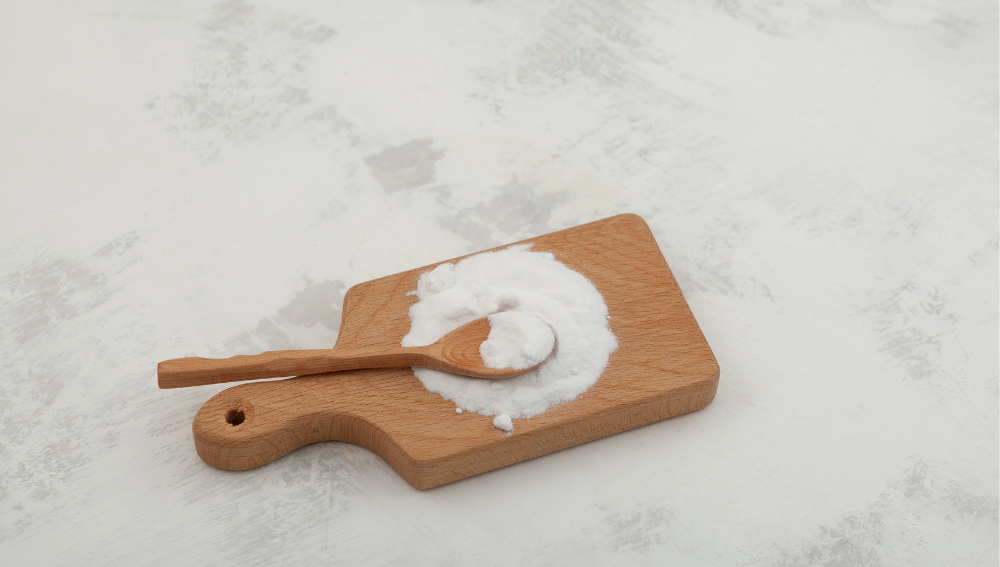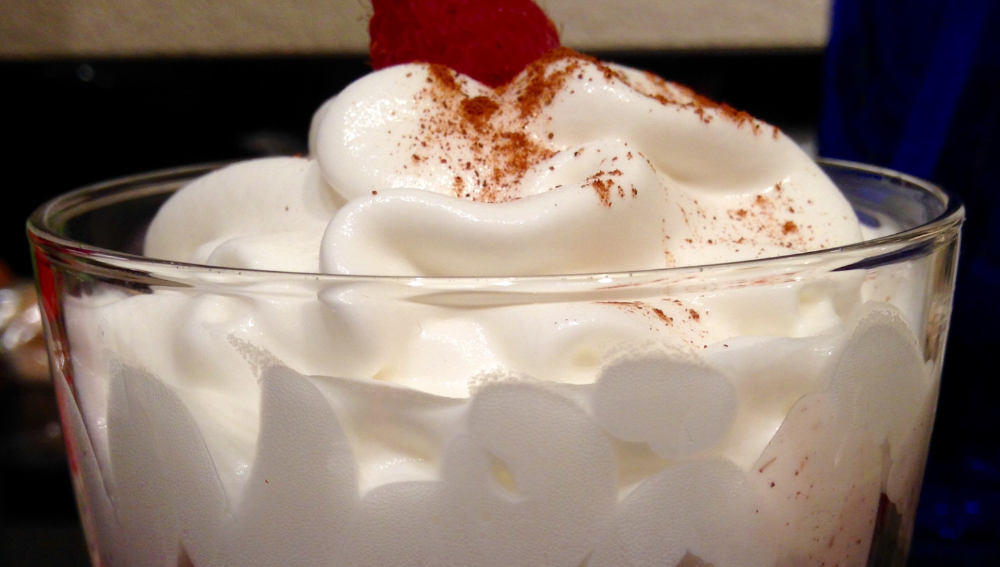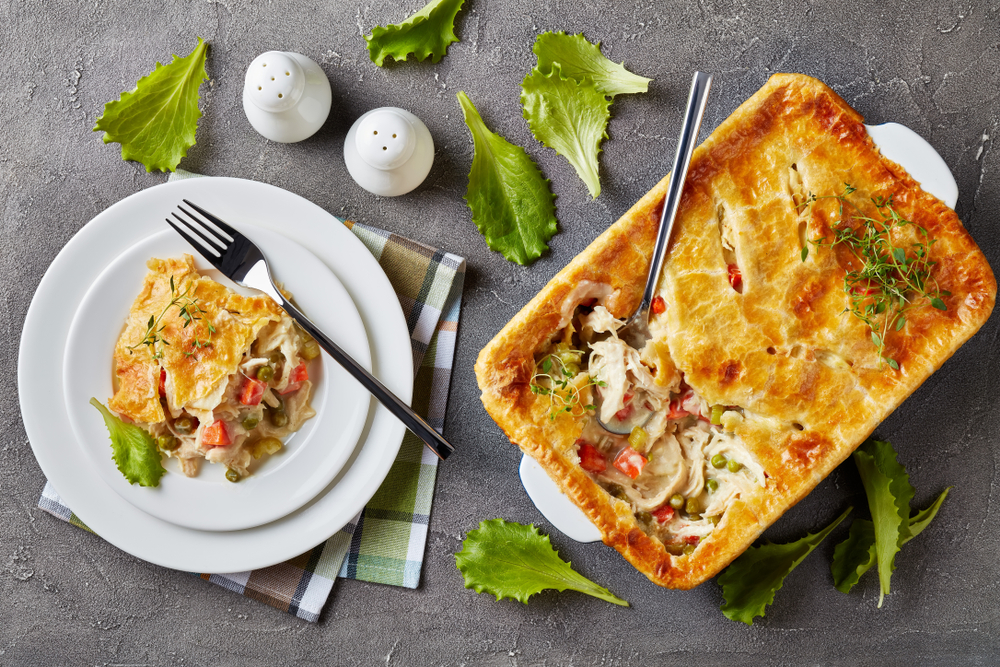Schmaltz is a staple in many traditional recipes, particularly in Jewish and Eastern European cuisine. It is an animal fat, typically rendered chicken fat, and is often used for cooking and baking in dishes that call for a rich flavor profile.
While schmaltz can be delicious, there are numerous reasons one might want a substitute, including dietary restrictions, availability, or health concerns.
Finding the right schmaltz substitute can be a challenge, as it depends on the specific dish being prepared and the desired flavor and texture outcomes.
Fortunately, there are a variety of alternative ingredients that can provide similar results. From vegetable-based options to other animal fats, these substitutes can maintain the essence of dishes where schmaltz is traditionally used without compromising on flavor or texture.
Key Takeaways
- Schmaltz is an animal fat traditionally used for its rich flavor in various recipes
- Different substitutes can be used depending on the dish and desired outcome
- A variety of alternatives, from vegetable-based to other animal fats, can effectively replace schmaltz in recipes
What is Schmaltz
 Schmaltz is a type of fat, typically rendered from chicken or sometimes goose, that has a long history in Jewish cuisine.
Schmaltz is a type of fat, typically rendered from chicken or sometimes goose, that has a long history in Jewish cuisine.
It is known for its rich flavor and unique texture, making it an essential ingredient in many traditional dishes.
Traditional Usage
In traditional Jewish cooking, schmaltz is often used as a cooking fat and a key component in various dishes.
One noteworthy item is chopped liver, where chicken livers are cooked with onions in schmaltz to create a flavorful and rich spread.
Schmaltz is also utilized in making knaidlach, a type of matzo ball typically served in chicken soup during Passover.
Schmaltz can be made by simmering chicken or goose fat with onions, allowing the rendered fat to solidify upon cooling.
The onions and cracklings, called gribenes, can be used as a seasoning or added to other dishes for an extra burst of flavor.
Culinary Importance
The culinary importance of schmaltz lies in its ability to impart a unique taste and richness to dishes, which is different from other cooking fats such as vegetable oil or butter.
It adds depth of flavor to classic Jewish dishes, such as chicken soup, where it helps create a silky, aromatic broth that warms your soul.
In addition, schmaltz is sometimes used in place of oil or butter for frying or sautéing, especially in traditional Eastern European Jewish cuisine.
The use of schmaltz provides a distinct taste and aroma to the dish, enhancing its overall quality and authenticity.
Characteristics of Schmaltz
Texture and Flavor
Schmaltz is a rendered fat, typically obtained from chicken or goose. It has a creamy texture and a rich, savory flavor, which contributes to its popularity in traditional cooking, especially in Jewish and Eastern European cuisine.
The creamy texture of schmaltz enhances dishes by adding a velvety mouthfeel and bringing out the flavors of the other ingredients.
Its savory flavor pairs well with a variety of dishes, imparting a depth and complexity that is difficult to achieve with other fats.
Nutritional Profile
The nutritional profile of schmaltz is primarily composed of fat, with a mix of saturated fat and unsaturated fatty acids. A tablespoon of schmaltz contains approximately:
- Fat: 13g
- Saturated fat: 3.69g
- Monounsaturated fat: 5.49g
- Polyunsaturated fat: 3.35g
- Cholesterol: 12mg
- Vitamin E: 0.25mg
Schmaltz is a nutrient-rich source of fat, providing essential fatty acids that are important for maintaining optimal health.
Its saturated fat content is lower than that of some other animal fats, such as lard and butter, making it a healthier choice in moderation.
Additionally, schmaltz is high in monounsaturated fat, which has been associated with a reduced risk of heart disease when consumed in appropriate amounts.
While schmaltz does contain cholesterol, it is worth noting that dietary cholesterol does not always directly contribute to increased blood cholesterol levels, as the body is capable of regulating cholesterol production in response to dietary intake.
This means that consuming schmaltz in moderation is not likely to pose a significant health risk for most individuals.
Furthermore, the presence of vitamin E in schmaltz contributes to its nutritional value, as vitamin E is an antioxidant that helps protect cells from damage caused by free radicals.
Considering Substitutes

Why Substitute Schmaltz
Schmaltz, a traditional Jewish cooking fat rendered from chicken or goose fat, has a unique flavor and silky texture that makes it popular in various recipes. However, there are several reasons someone may want to substitute schmaltz in their cooking.
Dietary restrictions, availability, or personal preferences can lead to the need for an alternative ingredient. Finding a suitable substitute that closely mimics the effect of schmaltz in a recipe can make a significant difference in the dish’s outcome.
Substitute Choices
Several substitutes for schmaltz can be considered for different cooking needs. Here are some popular options:
- Butter: A common ingredient in most kitchens, butter can be a suitable replacement, offering a rich flavor and similar texture for many recipes. Use it in equal amounts as you would use schmaltz.
- Vegetable shortening: This plant-based alternative has a neutral flavor, making it ideal for recipes where the distinct taste of schmaltz may not be essential. It can be used in equal amounts as a direct substitute.
- Oil: A variety of oils can serve as substitutes for schmaltz, such as canola, vegetable, or olive oil. These choices are suitable for those who prefer a less-rich alternative or follow a vegan diet. Use the same amount of oil as you would schmaltz.
- Duck fat: For those seeking a replacement that closely replicates the richness and flavor of schmaltz, duck fat is a suitable option. This option can be used in equal amounts as schmaltz in a recipe.
While choosing a substitute, it’s essential to keep the recipe’s specific needs in mind. Some substitutes may work better in certain dishes, like using butter for baking or oil for frying.
The final decision on an appropriate schmaltz substitute should take into account personal preferences, dietary restrictions, and the desired taste and texture of the dish.
Overall, experimenting with different substitutes may lead to discovering a new favorite ingredient for cooking.
Vegetable Based Substitutes

Vegetable Oil
Vegetable oil is a simple and widely available substitute for schmaltz. It is derived from various plants and commonly used in cooking due to its neutral flavor. Some popular vegetable oils include canola, sunflower, and soybean oil.
They are rich in monounsaturated fats, making them a healthier alternative to animal fat. However, it’s worth noting that vegetable oil may not provide the same depth of flavor as schmaltz.
Vegetable Shortening
Another viable substitute for schmaltz is vegetable shortening. It has a similar texture and solidifies when cooled, making it suitable for recipes that require a fat that holds its shape, such as pastry crusts.
Vegetable shortening is usually made from hydrogenated vegetable oil, resulting in a more stable and solid fat. However, keep in mind that it may contain trans fats, which are not ideal for a heart-healthy diet.
Olive Oil
Olive oil is a popular choice for those seeking a more heart-healthy substitute for schmaltz. It is a type of monounsaturated fat, known for its potential health benefits.
Olive oil has a distinct flavor, which may complement some dishes but not others.
When using olive oil as a substitute, it’s best to opt for a mild or light variety to maintain the original flavor profile of the recipe.
Plant-Based Alternatives
There are numerous plant-based alternatives for replacing schmaltz in recipes. One option is refined coconut oil, which has a neutral taste and solidifies when cooled – making it suitable for use in baking.
Other plant-based alternatives include avocado oil and grapeseed oil, both of which have a high smoke point, allowing them to be used in various cooking methods.
In conclusion, there are several vegetable-based substitutes for schmaltz that can be used in different recipes. Each option has its pros and cons, and the choice largely depends on the flavor profile and cooking method required in the dish.
Always consider the specific recipe and personal taste preferences before selecting a substitute.
Animal Fat Substitutes
Lard
Lard is a popular substitute for schmaltz, due to its similar texture and fat content. Made from rendered pork fat, lard has a neutral flavor that can easily blend into various recipes.
It’s ideal for sautéing, as it possesses a high smoke point, allowing for cooking at high temperatures without burning.
However, lard has a higher saturated fat content compared to schmaltz, so moderation is key.
Duck Fat
Duck fat is another excellent option for replacing schmaltz, as it shares many of the same properties. Like schmaltz, duck fat is rendered from poultry, resulting in a rich, savory flavor.
It offers a high smoke point, making it suitable for sautéing and frying.
While it is a healthier alternative to other animal fats like butter and lard, it should still be consumed judiciously due to its high calorie content.
Bacon Fat
Bacon fat can be a flavorful alternative to schmaltz, especially when a smoky note is desirable in a recipe. Rendered bacon fat is a byproduct of cooking bacon and has a similar texture to schmaltz.
Its high smoke point makes it suitable for sautéing, but it’s important to note that bacon fat may contain additives like sodium and nitrates, so use sparingly if you are watching your intake of these components.
Tallow
Tallow is rendered fat from beef or mutton and can be used as a schmaltz substitute when a neutral flavor is desired. It has a high smoke point and is suitable for cooking at high temperatures, especially in recipes that require frying.
Tallow, like other animal fats, should be consumed in moderation due to its saturated fat content.
Goose Fat
Goose fat, another form of rendered poultry fat, can also work well as an alternative to schmaltz. With a similar rich, savory flavor profile and a high smoke point, goose fat is an ideal choice for sautéing and roasting.
Although it is slightly higher in calories compared to schmaltz, it’s considered to be a healthier option than some other animal fats like butter and lard.
Other Substitutes

Ghee
Ghee is a popular substitute for schmaltz, as it provides a rich and buttery flavor to dishes. It is made by simmering butter, removing the milk solids, and keeping the golden liquid fat.
This results in a high smoke point, making it suitable for frying and sautéing. Ghee works well in recipes that call for schmaltz, such as latkes and matzo balls.
Clarified Butter
Clarified butter is another alternative to schmaltz. It has a similar process to ghee, with the milk solids removed. However, clarified butter is not cooked as long as ghee, retaining a lighter color and milder flavor.
This substitute is ideal for recipes where the flavor of schmaltz is not crucial, and it can also be used for frying, sautéing, and baking.
Mayonnaise
Mayonnaise can be used as a substitute for schmaltz in recipes that require a creamy texture or where the flavor of schmaltz is not paramount.
Made from oil, egg yolks, and vinegar or lemon juice, mayonnaise adds a unique richness to dishes like potato salads and sandwiches, but it may not be suitable for high-heat cooking methods.
| Substitute | Suitable for High-Heat Cooking? | Flavor Profile |
|---|---|---|
| Ghee | Yes | Rich, buttery |
| Clarified Butter | Yes | Mild, buttery |
| Mayonnaise | No | Creamy, tangy |
Crisco
Crisco, or vegetable shortening, is a suitable substitute for schmaltz when the recipe calls for solid fat. Crisco shortening is made from hydrogenated vegetable oil, and it has a high melting point, making it suitable for baking and frying.
While Crisco lacks the rich flavor of schmaltz, it provides a similar texture and can be used in recipes where the taste of schmaltz is not crucial.
How to Use Schmaltz Substitutes
Frying
For frying, use oil-based substitutes like vegetable oil, canola oil, or sunflower oil. These durable substitutes are excellent for high-heat cooking and pan-frying due to their high smoke points.
They ensure the food is cooked evenly without affecting the taste. Make sure to use the same amount of oil as you would with schmaltz for consistency.
Baking
In baking, butter and margarine work as reliable schmaltz substitutes. They provide a rich and tender texture to pastries and baked goods.
When substituting with butter, use a ratio of 1:1. However, for margarine, consult the packaging for accurate ratios since water content may vary.
Roasting
For roasting purposes, consider using duck fat or rendered bacon fat. Both possess a rich flavor profile similar to schmaltz and help the food retain its moisture, ensuring a delicious end-result.
Use an equal amount of duck fat or rendered bacon fat as you would with schmaltz.
Sautéeing
When sautéeing, opt for lighter alternatives like olive oil, grapeseed oil, or coconut oil. These substitutes offer a more neutral flavor while still ensuring your dish is cooked evenly.
Use the same quantity of oil as directed for schmaltz to maintain balance in your dish.
Remember, each substitute may slightly alter the flavor of your dish, but the result will be a delicious and satisfying meal.
Final Considerations for Substitution
When selecting a schmaltz substitute, it is important to keep several factors in mind. The smoke point of the chosen alternative is one such consideration, as liquid fats with a higher smoke point are suitable for high-temperature cooking.
This is particularly relevant when preparing dishes like roast chicken, in which high heat is required for a crispy exterior.
Another factor to consider is the storage of the substitute. Unlike schmaltz, which can solidify in a refrigerator, some other fats may remain liquid.
This aspect might affect the quality of the dish if the replacement is not as solid at lower temperatures.
The health benefits offered by various substitutes should also be taken into account.
While schmaltz is traditionally made from animal fat and may not suit those seeking healthier options, some replacements, such as vegetable oils, can provide added advantages.
It is crucial to compare the nutritional profiles of alternatives before deciding which to use in cooking.
Considering the flavor profile is equally essential, as it can greatly influence the taste of the dish. Schmaltz is known for its rich, savory flavor, so it is necessary to find a substitute that complements the dish without overpowering it.
Experimenting with different substitutes can help achieve the desired flavor in cooked chicken or meat.
In some cases, the preparation of schmaltz can be labor-intensive. Seeking out affordable and less time-consuming alternatives can be beneficial in the long run.
For example, opting for a readily available, cheap oil with a higher smoke point can be more convenient.
In conclusion, finding an optimal schmaltz substitute requires considering factors like smoke point, storage, health benefits, flavor profile, and cost-effectiveness.
By carefully evaluating these aspects, one can confidently choose the most suitable alternative for their specific dish and cooking needs.
Frequently Asked Questions
What can replace schmaltz in matzo ball soup?
If you’re looking for a substitute for schmaltz in matzo ball soup, you can use chicken or vegetable oil.
These oils provide a similar texture and mouthfeel to schmaltz, while also allowing the flavors of the soup to shine through. Use these alternatives in the same proportion as you would use schmaltz.
Is ghee a suitable alternative for schmaltz?
Ghee, a clarified butter commonly used in Indian cooking, can work as a substitute for schmaltz in certain recipes due to its high smoke point and similar consistency.
However, the flavor profile of ghee is different from schmaltz, so the outcome may vary depending on the dish. Use ghee in moderation since it is richer than schmaltz.
Can I use vegetable oil as a schmaltz substitute?
Vegetable oil can be a suitable schmaltz substitute in some recipes, particularly when you need an oil with a neutral flavor.
It’s ideal for frying or sautéing, but may not provide the same depth of flavor as schmaltz. You can use it in equal amounts as you would schmaltz.
What are some vegan options to replace schmaltz?
For vegan alternatives to schmaltz, consider using coconut oil, vegan butter, or olive oil. These options provide a similar texture and mouthfeel, but may have their own distinct flavors.
When substituting, use the same quantity as you would for schmaltz, keeping in mind that some of these options may have more pronounced flavors.
How does the use of lard compare to schmaltz?
Lard, rendered fat from pork, can be used as a substitute for schmaltz in recipes. The texture is similar, but lard has a distinctive pork flavor, which may alter the flavor profile of your dish.
Lard can be used in equal amounts as schmaltz, but note that it is not kosher or suitable for those with dietary restrictions.
Are there any butter-based alternatives to schmaltz?
Butter can be used as an alternative to schmaltz, but its lower smoke point might not be suitable for all recipes, especially those that require high-heat cooking.
When using butter as a substitute, start with half the amount of schmaltz and adjust as needed. Clarified butter, or ghee, can also be considered, as it has a higher smoke point and richer flavor.







